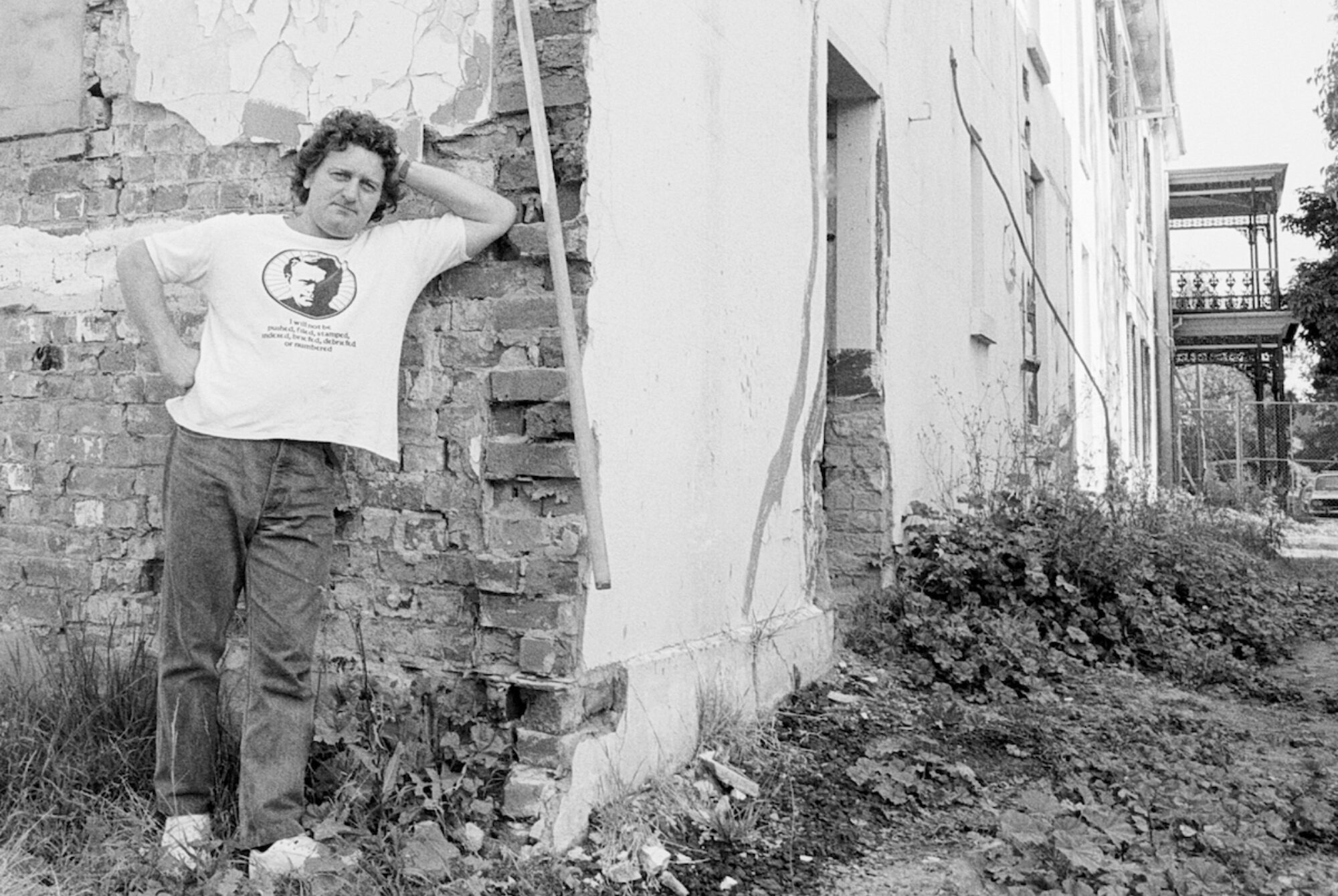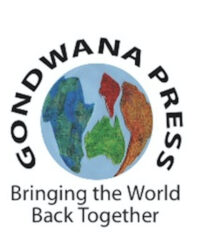FRAGMENTS (1979)
A film about being young, out of work and out of reach. Direction and Script by Paul Davies and Robert Antoniades.
“Fragments is the story of Mick Georgiou, a 17 year old casualty of life in the industrial suburbs of Melbourne. Unable to cope with school Mick leaves early and after a brief stint of work, is soon on the dole. Bored and frustrated he steals a car with a couple of mates and is soon on the run from the police. Neither his family, his girlfriend and his other mates seem to understand. They offer instead, a sort of repressive tolerance. Mick rejects it all.
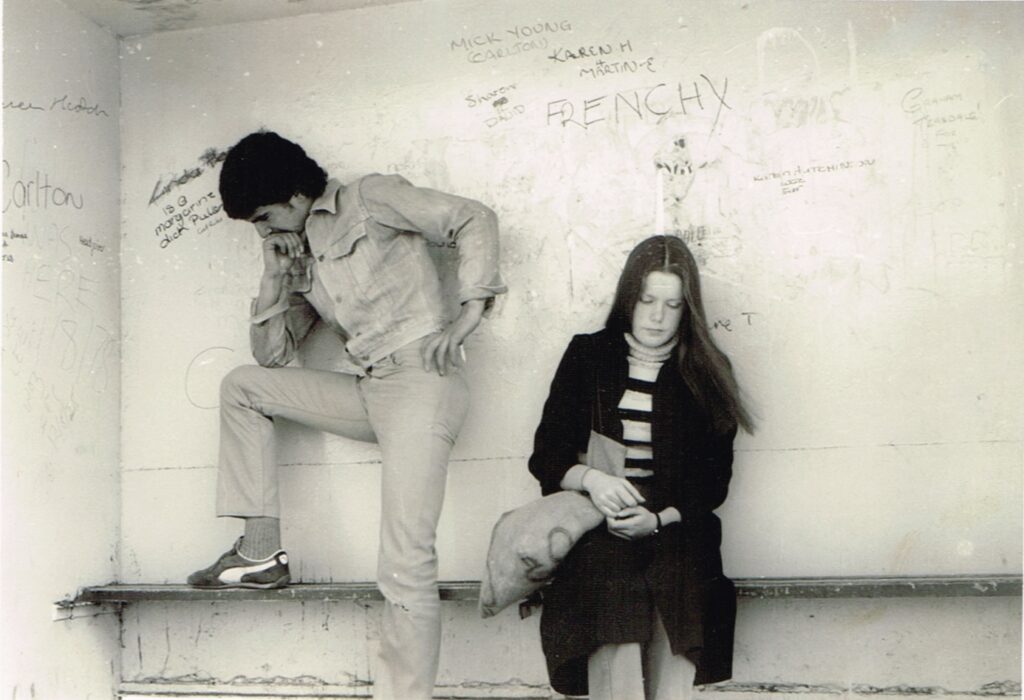
EXITS (1980)
Contrasts the sacking of the Whitlam Labour Government on the 11th of November 1975 with the sacking of Anna, an usherette in an iconic Melbourne Cinema – The “National Theatre” in St. Kilda. As the shock of both events sink in, the usherette meets up with a journalist (George) in a pub and together they reflect on the absurdity of politics and the possibility of malign foreign actors in the dramatic events unfolding all around them. George explains a suspicion he has about the crossword puzzle in that day’s newspaper. He believes it contains a covert hint that the gubernatorial coup (approved and assisted by British royalty and American counter-intelligence) is coming. As George and Anna continue to drift through the city and the rest of the day together (and perhaps, contemplate a relationship), the larger political events take their inevitable course and tend to overwhelm everything else. We get flashbacks to another November 11 event – the hanging of Ned Kelly – and also to various military parades associated with “Remembrance Day” (celebrating the conclusion of World War 1). It reminds us that the Governor General who sacked Whitlam is also the nominal head of the army (as well as the nominal representative of a foreign monarch). The story ends in a moment of Orwellian confusion and paranoia as George returns home only to find his house emptied of all its contents. It leaves us with the feeling that perhaps he was onto something with the crossword puzzle after all ? …
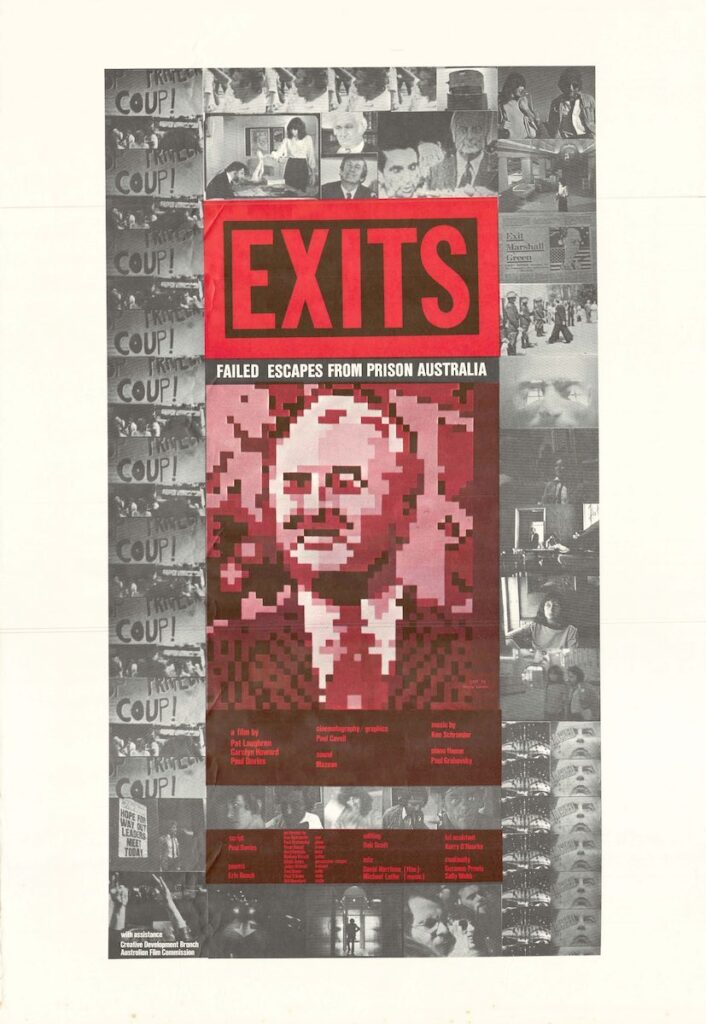
EXITS OPENING SEQUENCE. Establishing George (a journalist) and Anna (a cinema usher) as the two main characters:
NEIL LYNNE (1984) also known as “BEST ENEMIES”
A film about young men and women coming of age during the Vietnam war.
Adapted from the novel by Jens Peter Jacobsen
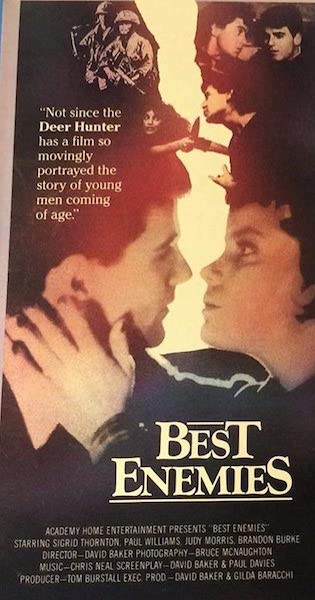
TRAPS (1984)
(co-written with director John Hughes)

In 1983 the Hawke Labor government came to power, establishing an administration of ‘consensus’ and was re-elected in ’85. Carolyn Howard plays a fictional journalist pursuing investigative political stories through actual tally rooms and newsrooms, meeting journalists, politicians and artists. Evoking histories of the Cold War and the events of November 11, 1975, Traps is a provocative blend of fact and fiction, news and disinformation, conspiracy theory and the packaging of politics.
Available at https://www.artfilms.com.au/item/traps
ALL THAT IS SOLID (1985)
(co-written with director John Hughes)
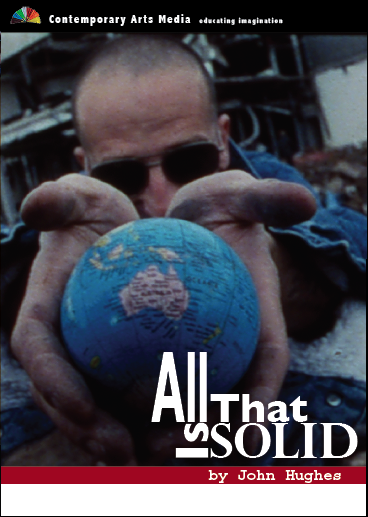
The present is characterized by the absence of shared visions of the future. While circulation of commodities and technology appear to command universal claims to meaning and dominance, fragmentation, diversity and difference occupy the foreground. All That is Solid was made in the context of Australia’s contested Bi-Centennial celebrations (1988) and financed through the Documentary Fellowship program, a scheme initiated by the Australian Film Commission and ABC TV to challenge the tendency to conformism of television with formal innovation. This film initiates a new category, ‘the speculative documentary’.
Available at https://www.artfilms.com.au/item/all-that-is-solid
ONE WAY STREET (199I)
FRAGMENTS FOR WALTER BENJAMIN
(co-writtten with director John Hughes)
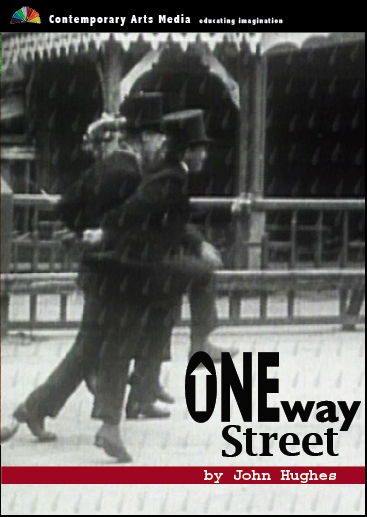
Walter Benjamin is one of the most influential thinkers of the 20th century, yet his work is relatively unknown to many. Benjamin, who died escaping the Gestapo in 1940, has been increasingly recognized by artists and thinkers the world over. Born into a wealthy Jewish family, Benjamin was a well-known writer and broadcaster in pre-Hitler Germany before he was forced into exile in 1933 when he fled to Paris.
One Way Street is both an exposition of Benjamin’s ideas and a search for Benjamin the man in locations as diverse as the academics of Moscow, the bookstores of New York, Parisienne arcades and the cemetery in a Spanish costal village that has become a place of pilgrimage for Benjamin devotees. Scholars discuss the impact of Benjamin’s work, and the combination of interviews, stylized reconstruction and archival film results in a dynamic portrait of one of the 20th century’s most influential thinkers.
Available at https://www.artfilms.com.au/item/all-that-is-solid
HOLY ROLLERS (2001)
(co-written with director Rosie Jones)
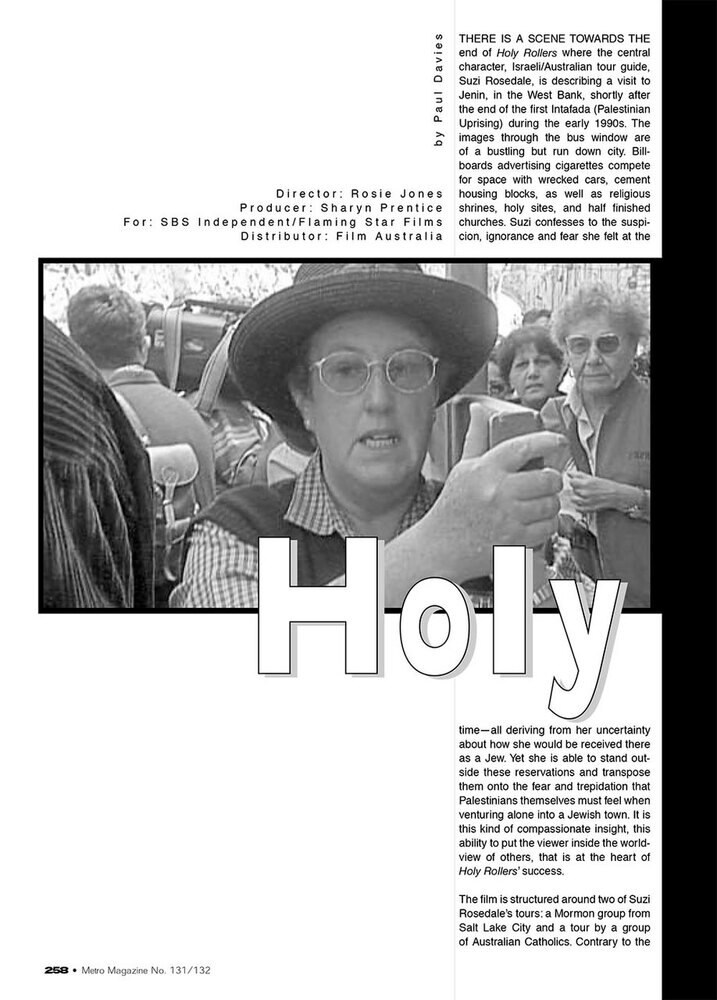
Religious faith, the tourist dollar and Middle Eastern politics intersect in Holy Rollers, as tour guide Suzi Rosedale leads busloads of Christian pilgrims on their trip-of-a-lifetime around the Holy Land. These are people searching for a spiritual transformation, but as they follow ‘in the footsteps of Jesus’ from his birthplace in Bethlehem to the site of his crucifixion, it’s impossible to ignore the modern reality of life in this fractured land.
Suzi Rosedale is an Australian woman living in an outer suburb of Jerusalem, offering guided tours of the city and surrounding areas for visitors on religious pilgrimages. This Australian made documentary follows Suzi on various trips as she takes groups of Mormons, Catholics, Jews and Muslims to the sites of Jesus’ life, literally following in his footsteps. The exact location where key events occurred are contested by various guides who offer differing opinions as to “the” place where, for example, Jesus was buried. Suzi calmly takes all things in her stride including a client in need of an unavailable can of Sprite with his dinner in a kibbutz. The need for the tourism industry to make money from such endeavours is matched by the emotional effect that the Holy Land has on its visitors. Technology meets ancient religious beliefs as Suzi escorts the tour around in an air-conditioned bus and each client is hooked up with a headset in order to hear Suzi’s commentary when on site. The commercial side of religious tours is exposed but not ridiculed in this entertaining documentary. Phillip Adams provides a comprehensive voice-over throughout. Filmed on video.
Available at https://www.idfa.nl/en/film/e25c84d1-0562-40d4-b584-ce3a5960b8d3/holy-rollers/docs-for-sale
RED TED AND THE GREAT DEPRESSION (1994)
(cowriter with director Pat Laughren)
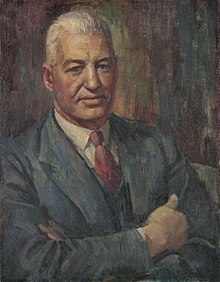
‘Red Ted’ Theodore was the no holds barred union organiser who rose to be federal treasurer, only to confront the gravest economic crisis in Australia’s history. When the economic rationalists demanded spending cut backs, Red Ted argued for priming the pump. Beaten by the banks, betrayed by Jack Lang and undone by scandal Red Ted’s visionary economic plan never saw the light of day. As a result, the Great Depression lingered until the Second World War. Red Ted and the Great Depression looks back to the 1930s, not with nostalgia, but for the light it sheds on crucial contemporary issues of unemployment and international recession. —Pat Laughren
The story of one man’s struggle to save Australia from the economic catastrophe of the 1930s. ‘Red Ted’ Theodore, federal treasurer 1929-31, proposed a radical plan of credit expansion to stem the rising tide of unemployment. Beaten by the banks, betrayed by Jack Lang and undone by scandal, Theodore’s plan was defeated. His ideas became common policy after World War II.
